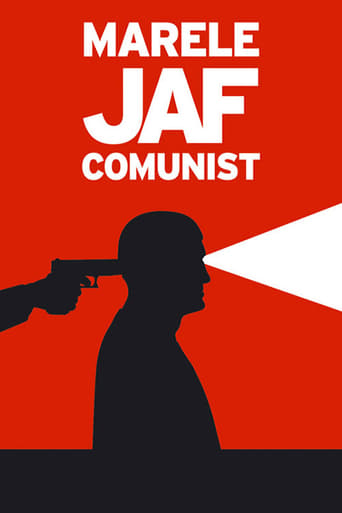dromasca
If you do a search at IMDb about 'Reconstituirea' (The Re-enactment) you will get two hits. One of them is by Lucian Pintilie, one of the most interesting Romanian directors of theater and occasionally a gifted film director. His 1968 film intended to be the start of a new page in the Romanian cinema, at the time winds of change were blowing in Eastern Europe and democracy was being tried in Czechoslovakia. However the change did not happen, the Soviet troops invaded Czechoslovakia in August that year, and democracy and freedom had to wait for another two decades until they prevailed in Eastern Europe. Pintilie's film was taken out of the theaters, and the new wave of the Romanian cinema was to be created many decades later by young folks who were kids or not even born in 1968.The other film is a documentary made in 1960 by Virgil Calotescu. Usual cinema goers in Romania never had a chance to view it, as it was screened only in closed theaters, as a propaganda exercise. Yet, Calotescu and cameraman Pantelie Tutuleasa were well known film personalities in Romania at that time. Both films are about re-enactment of crimes committed during the Communist regime.'Marele Jaf Comunist' (The Great Communist Robbery) is a documentary about the making of the 1960 documentary which exceeds by large the limits of the genre. It tells the story of a group of Romanian of Jewish origin, former Communists, who robbed a money transport of the Bank of Romania gangster-style in 1959. The reasons of their crime is a mystery until today, it may have been the search of adventure combined with frustration because of the turn Communism was taking, or maybe political reason related to the desire to help the emigration to Israel. After a big investigation of the secret police their were caught, and force to re-enact the robbery, then put on trial and condemned to death. All five men were executed, the only woman in the gang was put on prison for life, she got out of jail a few years later and died later in Israel in the 70s. We do not learn too much about the true and complete motivations of these people from the movie.There is a strong message in this documentary that comes out from the film in film composition and from the permanent juxtaposition of the propaganda text that the 1960 documentary was using with the realities of life under Communist rule. By doing this Alexandru Solomon intended to make a true documentary about a documentary of lies. Those who survived - investigators, judges, the cameraman, fellow detainees, neighbors, collateral victims of the original investigation - all tell their side of the story and it looks like the documentary makers did not push too hard on them, they let them provide their own pieces of the puzzle leaving to us the viewers the task of composing our own full image. What we get is the mirroring of a time when everything was put in the service of the system, when instruments of truth - the justice system or the film in the camera - had become part of the lies empire.
pe_sub_pod
I didn't thought that Romanian are capable of making such a movie. This movie is about our roots (Romanian), about our illusions, about our nightmares. Not only for those born after '90 the communism appears in a mythical form, but most for those who lived than and who have been educated to forget, not to put themselves many questions and the most important not to try to find answers. .... "Communism" and "humanity" are antonyms!!! This movie shows the communist era "in all it's splendor" - a moral cancer which is spreading irreversible in all the corners of the Romanian society. There are written many books - and there will be more- about this, but words fade when side by side whit images ... i think this movie will mark a turn in some lives.


